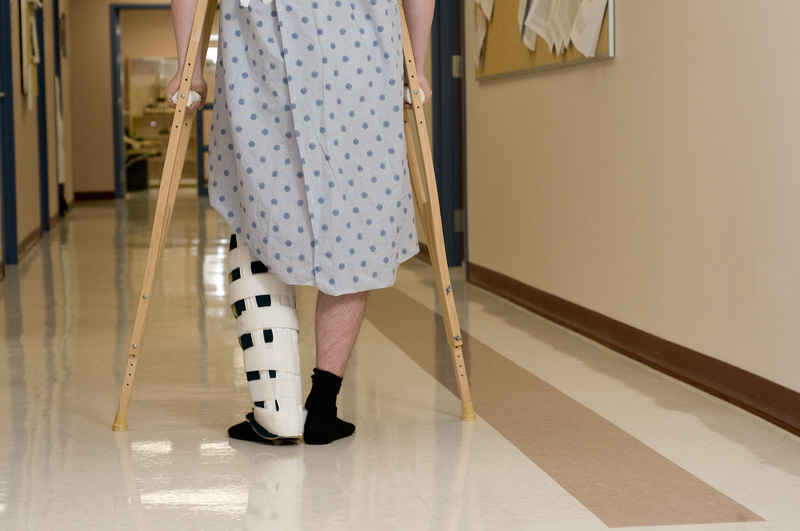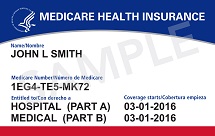
Your Maryland Personal Injury Claim
You are entitled to recover:
My evaluation of your claim is based in large part on my perception of what a judge or jury would award you (this is an art and not a science).
Normally, I will negotiate with the insurance company when you have fully recovered from your injuries, or when you have reached maximum medical recovery.
Many times, depending on the particulars of your case and the adverse insurance company, I will contemporaneously file a law suit so that the insurance company knows we mean business.
When the insurance company makes what I believe to be their top offer, you will decide whether to settle your claim or proceed with litigation. I make recommendations, you make the decision.
With this in mind, the following is provided for your consideration:
A. Medical Treatment and Bills
The only relevant decision you must make is what you believe to be in your best medical interests. You are entitled to recover the reasonable medical bills associated with appropriate medical care. Although an insurance company often disputes what they believe to be reasonable, there is no unequivocal litmus test which defines reasonable or appropriate care or length of treatment. Keeping in mind the overriding consideration that regaining your health is the ultimate goal, you should follow the advice of your health care provider(s) and do not hesitate to voice concerns or seek a second opinion if you believe it to be appropriate. Never hesitate to consider alternative or holistic modes of treatment, including acupuncture or other nontraditional treatment. Forty years of experience has taught me "different strokes for different folks." Everyone is different.
It is obviously very important that you provide an honest and accurate history to your health care providers during their evaluation. You should never exaggerate or embellish your complaints. Make sure you disclose to your health care providers all of your symptoms that you believe are caused by the accident. You should keep in mind that the insurance company is entitled to receive all of your medical records, and in many cases your prior medical records. Please note that with limited exceptions, there is no doctor/patient confidentiality doctrine and what you tell your health care provider will be contained in the medical records that are provided to the insurance company.
Insurance companies review all medical records with a great deal of scrutiny and evaluate personal injury claims with an overdose of skepticism. They take umbrage and reduce their evaluations in the following types of situations:
- Low impact or minor property damage collisions
- Significant lapse in time from the date of the collision to the date of the first treatment
- Significant unexplained gaps in treatment
- Prior injuries or claims which are not disclosed to the insurance company
- Lack of objective evidence to substantiate a person’s subjective complaints
B. Lost Wages and/or Earnings
A person is entitled to recover lost wages or lost income for the time missed from work due to the injuries sustained in an accident. This is true even if the person is technically not out of pocket any wages or earnings because the person has available sick or vacation leave, comp time, etc.
The decision to work must be based solely on what a person believes to be in their best interests as it pertains to his or her life.
Generally speaking, an employer is not required to keep an employee’s job open just because a person has been involved in an accident and has a disability note from their doctor. Likewise, an employer is not required to make available "light duty" because of a physician’s recommendation. The decision to return to work must be made by the client while weighing a doctor’s recommendation and any negative ramification associated with their employment. We will fight to recoup those wages or earnings that were lost for the time missed from work deemed appropriate by your physician, but payment of lost earnings is poor compensation for the loss of a job or promotion opportunity.
We always have the burden of proving lost wages or income to the insurance company. Insurance companies do not agree to compensate lost earnings without appropriate evidence and documentation. This is usually not difficult to prove for a salaried employee as we normally receive appropriate documentation from the employer setting forth the time missed from work and the corresponding loss of pay. Under Maryland law, a person is entitled to recover lost wages for the time actually missed due to the injuries sustained in an accident, even if the person is paid for the time missed by utilizing sick or vacation leave.
It is much more difficult to prove lost wages for individuals who are self-employed or work on commission. For any significant lost wage claim, insurance companies typically require tax returns to document a person’s claim. Failure to report income results in a corresponding inability to claim such income. If available, proof of income for the preceding several months from the date of the accident can be utilized in corroborating the legitimacy of a lost wage claim. It is sometimes necessary to assimilate affidavits or statements from clients or customers to substantiate the loss of earnings. It is also necessary to document all additional expenses such as hiring replacement workers due to your inability to perform your work because of your injuries.
C. Pain and Suffering
A person is entitled to be compensated for what is generically termed the "pain and suffering" caused by the injuries sustained in an accident. Another way of viewing this concept is to say that a person is entitled to compensated in dollars for how an accident impacts their quality and enjoyment of life.
In a jury trial, it is the jury who determines the amount of the award and the jury is instructed to consider the following:
- The personal injuries sustained and their extent and duration.
- The effect such injuries have on the overall physical and mental health and well-being of the plaintiff.
- The physical pain and mental anguish suffered in the past and which with reasonable probability may be expected to be experienced in future.
- The disfigurement and humiliation or embarrassment associated with such disfigurement.
There is simply no easy or mathematical formula to evaluate a personal injury claim. My evaluation of a claim is based to a significant extent on what I believe a judge or jury would award in a personal injury claim if the case were to go to trial. This is extremely subjective and is based on my forty years of litigating cases.
Keeping in mind that no amount of money can adequately compensate a person who has
sustained significant and/or chronic injuries, the following is a brief synopsis of some of the factors that I consider in evaluating a claim:
i. How the accident occurred
Is liability clear-cut or does the other driver have a significant argument that he or she was not at fault? Are there any aggravating or mitigating factors regarding the occurrence, such as alcohol?
ii. Nature of the impact
I have had many clients who were involved in low impact accident which resulted in significant injuries. On the other hand, many times a person can escape injury-free from a catastrophic crash. Although I recognize this, sometimes jurors look at a low property damage accident and are skeptical that the injuries sustained are as severe as the person claims.
iii. Objective versus subjective evidence of injury
Is there any diagnostic evidence or are there clinical findings which corroborate my client’s subjective complaints? Did the health care provider find any spasm during the examination(s)? This is particularly important with "soft tissue" type injuries as some jurors are hesitant to conclude that a person has sustained significant injury unless there are objective findings.
iv. Prior medical history
A person is entitled to recover fair compensation for the injuries sustained as a result of an accident. Often times a person has previous problems and/or degenerative changes in an area which is injured in an accident. This is particularly common with neck and back injuries. The fact that a person is older or does have degenerative changes noted in an x-ray does not negate the right to recover for an injury caused or exacerbated by an accident. What does, however, have a significant negative impact on the value of a claim is the failure to disclose previous injuries or problems to your doctor and attorney.
v. Activities/events affected by the accident
The inability of a person to engage in those activities which are important to them is an important consideration in the evaluation of a claim. These activities include participation in sports, exercise, gardening or other activities or hobbies which are important. The inability to go on vacation, attend weddings or other social events is important. I am not a proponent of keeping a "daily diary", but we do urge you to keep track of any significant negative impact your injuries have on your enjoyment of life.
vi. Duration of injury
This is probably the most important factor in assessing the "pain and suffering" component of a claim. A person is entitled to be fairly compensated for pain and suffering which will likely be incurred in the future. It is this future pain and suffering for chronic or permanent injuries which can result in significant awards.
There are countless other factors which can impact the value of a claim. Certainly my perception of how a jury will view my client and my client’s witnesses is very important. Likewise, my perception of the credibility or like ability of the at-fault driver is an important consideration.

Need our legal advice?
Call us for a free consultation
Slatkin & Lupo
Law Offices





